It’s that wonderful time of year when strings of yellow buses line our neighborhoods, we come together for Friday night lights and welcome Homecoming celebrations. For career colleges, it’s also the time of year to either remain dedicated to their high school efforts or abandon them entirely.
Since 2010, we have seen a significant increase of career colleges discontinuing their high school programs. With low enrollment and increased marketing costs, high school programs are often viewed as an expense, rather than an investment, and are first in line on the “operations chopping block.”
There are valid reasons why career colleges retreat from the high school market. Admissions teams have to dedicate more time to recruiting and enrolling high schools than they do with adult learners. Students, and often their parents, have to be walked through the entire process multiple times. Gaining access into high schools is more difficult today and time consuming. And, the cost of recruitment supplies can add up fast. As a result, many career colleges abruptly halt their high school efforts, after only 2-3 years, as they struggle to see the immediate impact and view high school as an unnecessary cost.
Unfortunately, those campuses that decide to shut down their high school platform later find they have damaged their reputation in the community. As such, the wide perception held by area high school administrators is, “There is not a real commitment to our students.” While some career colleges completely disregard teens as a viable opportunity to grow their populations, other schools are enjoying the benefits of remaining dedicated to their high school strategy.
Those campuses that maintain their high school program experience a lower CPI, improvement to 90/10, better attendance and higher completion rates, strengthened partnerships within the community and public school system, and have lasting growth amongst the 17-19 year old demographic. With such dedication, we find successful high school programs contribute 10% – 22% to the overall campus population, and with significantly less cost-per-start.
Expectations and approach are key variables in whether a career college’s high school program will get an A+ or fail. Having realistic expectations puts less emphasis on immediate returns and places more importance on long-term impacts and growth, while positioning the campus with invaluable partnerships that provide additional lasting benefits. The approach used to directly connect with teens in the classroom is heavily influenced by expectations, as well as having a strong understanding of the needs of today’s students and administrators.
Many career colleges that abandon the high school market do so because of the inability to gain access into high school classrooms, which is more challenging than before, as well as fail to make a true connection with students, teachers and counselors. Not only does THE right approach allow Campus Representatives greater access and produce more inquiries, but also increases the quality of inquiries to influence greater conversions.
In 2013, we conducted a study to determine why access to high school students is more restricted and what College Representatives must do to improve their opportunities to connect with teens. We asked 2800 Career Counselors and Teachers throughout the United States:
Question:“What has lead high schools to increase restricted access that College Representatives have to students?”
- 47% The commercialization of the college
- 31% Inability to connect with today’s demographic
- 11% Lack of follow-through and poor service given to interested students and requests from high school faculty and administration
- 7% High turnover of College Representatives
- 4% Poor reputation of the institution
Question:“What must College Representatives provide to be granted more access to students?”
- 33% Motivational messages, which challenge students to consider educational options with a clear career path
- 27% Messages that enhance classroom curriculum
- 22% Provide a skill-set, which strengthens a student’s decision-making ability and marketability to colleges and employers
- 12% Partnership between the college and high school faculty/administration
- 6% Promote financial planning and options for students and families
The career colleges we’ve partnered with, to help establish realistic expectations, enhance their direct approach and remain dedicated to long-term impacts, have seen high school inquiries more than triple, enrollment conversions more than double and become positioned with a greater market reach.Attracting high school students is no different than recruiting for community colleges and traditional colleges and universities, yet more career colleges are choosing to no longer compete. Ultimately, it takes dedication to experience the many benefits a high school program can provide a career college. So, as students file off the school buses, considering their next academic path, will your school be a legitimate option or will you be content with your competition recruiting them away?About Legacy Solutions
Legacy Solutions is a premier admissions training and strategic enrollment management consulting group. With over 17 years of success, Legacy Solutions has been an international trusted partner of higher education institutions, both public and private, specializing in admissions effectiveness training and enrollment optimization solutions.
Our unrivaled blend of expertise, innovative and forward thinking approaches, scientifically proven strategies, as well as our highly regarded results-driven training programs, have supported schools in meeting/exceeding their enrollment goals while giving them the competitive advantage to overcome future challenges.
Visit: www.LegacySolutions.co
Email:mschmoker@legacysolutions.co
Direct: 561-235-1954
Featured posts
May 16, 2023
May 16, 2023
May 16, 2023





